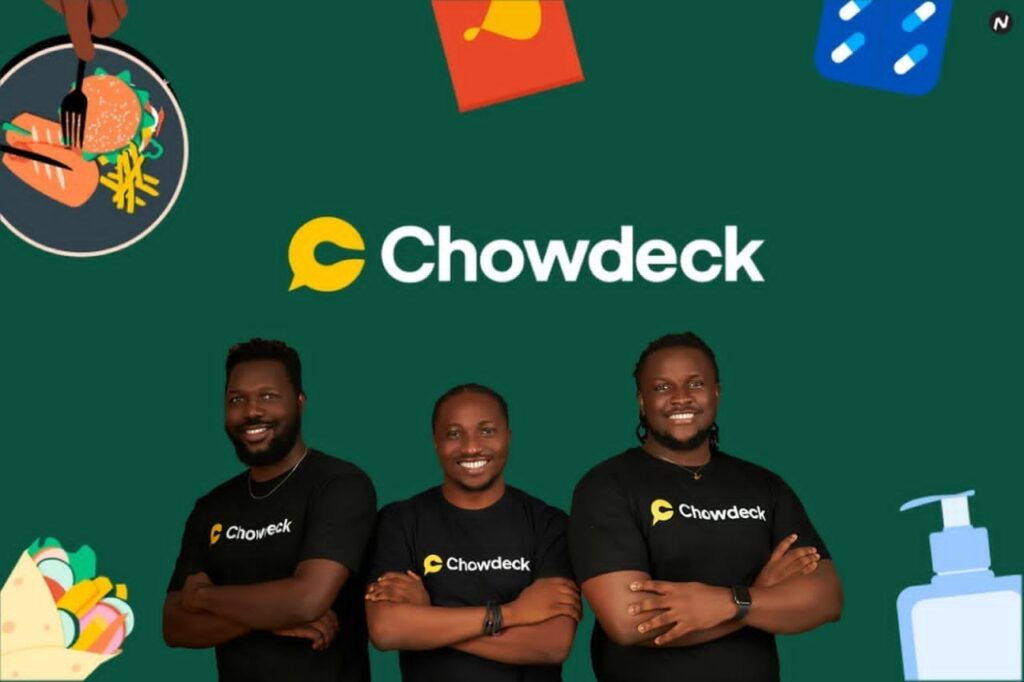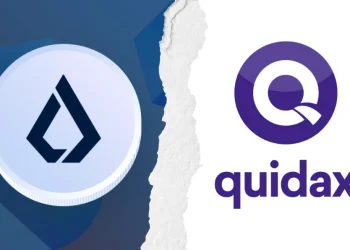Lagos loves audacity. At Eko Hotel’s Car Park B, a six-metre-wide, six-metre-tall cauldron stood like public sculpture, flame-ready and history-minded. Chef Hilda Baci set out to cook what she described as the world’s largest pot of Nigerian jollof rice, with the vessel rated at 22,619 litres and crowd interest surging so strongly that organisers confirmed the venue shift from Muri Okunola Park to Eko Hotel to handle demand. Reports through the day pegged registrations north of twenty thousand, and Baci explained the final calibration on site: 4,000 kg of raw rice (about 200 bags), targeting 14,000–16,000 kg cooked yield.

The spectacle had its tense moments too. While attempting to weigh the monster pot, a lifting squeeze and a follow-up attempt bent the legs, prompting frantic signals to the crane operator before stabilisation and service resumed. It only heightened the drama of a marathon cook that doubled as public theatre.
Then came the line that travelled: “Please come and eat the food, it’s too much and I don’t want to waste it.” Clipped and shared across socials, it captured both the generosity and the logistics question in a single breath: Lagos can gather; can Lagos move that much food hot, safely, quickly to tens of thousands of doorsteps?
The market context—and why Chowdeck is the star of this question
Food-delivery startups in Nigeria are making serious waves, pushing faster cycles, deeper neighbourhood coverage, and expanding into grocery, pharmacies and local markets. Star of the moment is Chowdeck: YC-backed, operationally disciplined, and fresh off a $9m Series A led by Novastar Ventures (with YC participating) to accelerate quick-commerce via dark stores and hyperlocal hubs and to grow across Nigeria and Ghana. The company publicly cites operations in 11 cities, ~1.5m customers, 20,000+ riders, and an average 30-minute delivery time with a high share of bicycle drops in dense areas, which matters for last-kilometre reliability.
On the consumer side: Chowpass, the platform’s membership, advertises free deliveries and reduced service fees from ₦3,500/month; and Chowdeck’s service fee is a percentage of basket (separate from delivery), explicitly capped to avoid excess at checkout. Lagos users are fee-sensitive, and delivery-plus-service optics often determine whether a cart converts.

Would this make sense for the Chowdeck marketing team?
From my side of the table, having led data driven PR and worked on the marketing team at early ecommerce giants, Konga during Yakata, driven high impact promos at eTranzact (Cow, Chicken Go Mobile), contributed to Jumia campaigns, and delivered consumer marketing programmes in Dubai and other markets, the lesson is consistent: audacity, executed tightly, becomes the story people retell for weeks. That story is a dividend you bank long after the last bowl lands.
There are two lenses. The numbers lens stares down unit economics. The mindspace lens understands Lagos, momentum, and the compounding value of a talkable, generous act.
Great marketing teams do not feel their way into stunts; they decide into them. The sequence is disciplined:
- Name the outcome: installs, reactivation, Chowpass membership growth, loyalty lift, and the single promise customers will hear.
- Set guardrails: brand safety, food safety, service promise, refund posture, and PR risk.
- Model the unit economics: CPI or CAC, payback window, LTV by cohort, second order rate; then stress test supply, including rider hours, slot capacity, and weather contingencies.
- Choose a posture: dominate mindspace (splash), efficient reach (balanced burn), or loyalty and retention (membership led).
- Instrument measurement before launch: baselines for share of search, unaided awareness, DAU or WAU, cohort retention, NPS or CSAT, plus a ten minute premortem plan for what could break and how we will respond.
The reality test: can the record jollof be delivered citywide, same day?
To come up with this arithmetic, we have taken some of Chowdeck’s reported metrics and spoken to a food logistics expert. Start with honest arithmetic. A pot rated at 22,619 litres, calibrated on the day to 4,000 kg of raw basmati rice yielding 14,000 to 16,000 kg cooked, converts to tens of thousands of plated portions once you add protein and sides. For delivery planning, use a working portion of 600 g per order. That places the order universe in the region of 20,000 to 25,000 drops.
Two constraints dominate everything that follows. First, food integrity, which includes temperature retention above 60°C, tamper security, and a maximum hot hold to doorstep window of up to 2 hours. Second, drop density, which is how tightly you can cluster orders around each micro hub so riders can complete multiple cycles per hour without fighting bridges, expressways, and rain.
A workable deployment for Lagos looks like this.
Hub and spoke using dark micro hubs. Stage sealed pans at 4 to 6 micro hubs across Island and Mainland so the last mile becomes a last kilometre.
Strict slotting by cluster. Offer 90 minute windows for each cluster, cap each slot to the rider supply actually booked at that hub, and sell out slots cleanly. Promise slot on time, not instant.
Delivery friendly packaging. Use stackable containers that fit standard bike boxes or panniers, thermal liners, tamper seals, and batch or hub codes on every bag for traceability.
Quality assurance and temperature discipline. Hold above 60°C, maintain batch logs, and publish simple food safety messages so the public sees professionalism rather than chaos.
Rider allocation: the numbers. In dense areas a 30 minute mean cycle is a sensible planning baseline, which gives about 2 deliveries per rider per hour across a long wave.
- 10,000 deliveries in 6 hours require about 834 riders concurrently.
- 20,000 deliveries in 12 hours require about 834 riders concurrently.
- 25,000 deliveries in 24 hours require about 521 riders concurrently.
These figures are within reach for a platform that can draw on citywide capacity, provided slotting discipline is firm and hub balance is actively managed so choke points do not form.
Treat weather and traffic as design inputs, not afterthoughts. Place heavier waves in parts of the day with lower precipitation risk, split Island and Mainland waves so bridge pressure does not break the plan, and keep contingency riders in reserve for rain bursts and schedule drift.
Lens 1: Respect the maths
Each delivery has 2 basic costs: paying the rider and buying the packaging.
- Rider pay: ₦900 per drop
- Packaging: ₦400 per order
So, if customers pay ₦0 for delivery, the sponsor pays ₦1,300 per order.
If customers pay ₦500, the sponsor pays ₦800 per order.
If customers pay ₦1,000, the sponsor pays ₦400 per order.
What that adds up to:
- 10,000 orders → ₦13m at free delivery, ₦8m at ₦500 delivery, ₦4m at ₦1,000 delivery
- 20,000 orders → ₦26m, ₦16m, ₦10m
- 25,000 orders → ₦32.5m, ₦20m, ₦10m
Another way to judge value: if you spend ₦13m on free delivery and 50,000 new people install the app because of it, you effectively paid about ₦260 to win each new user. If the average person you win goes on to spend more than that over time, the spend makes sense.
To stay sensible in the real world, keep a few safety allowances:
Time slots and hubs need firm limits so you do not accept more orders than riders can handle.
Rain and traffic can slow trips and push rider pay up. Keep a small extra budget per order.
Packaging gets damaged or wasted. Buy a little more than your exact count.
Lens 2: Claim mindspace you cannot buy piecemeal
Great numbers matter, but what people remember matters more. The campaigns that stick are generous, easy to recognise, and well run. If Chowdeck becomes the service that fed Lagos from the biggest pot of jollof in a single day, it earns a place in people’s minds that ordinary adverts cannot buy. Yakata seized share of culture; Cow, Chicken Go Mobile cut through because it was distinctive, visual, retellable. This jollof moment is similar. If Chowdeck is the platform that fed Lagos from the world’s biggest pot in a day, it becomes shorthand for scale and reliability. Expect:
What would you see after something like this?
- More people googling “Chowdeck” and related food delivery terms in the next 3 to 10 days
- More people mentioning the brand without being prompted
- Old users trying the app again because friends and family used it during the event
- More people joining Chowpass, the subscription that gives cheaper or faster delivery, if members get the best time slots or shorter wait times
To make the buzz even bigger, tell the story as carefully as you run the deliveries.
- Pair local creators with each hub so they film handovers and slot countdowns as they happen
- Show a simple public dashboard with slot status, so people can screenshot and share that things are running on time
- Share short rider stories that show the human effort behind the drops
- Keep food safety visible from start to finish, with batch labels, temperature checks, and tamper seals on every bag
Do this well and you are buying talk value, visible proof that the operation works at scale, and a brand memory that carries into the Ember months and the festive season.
The money side: delivery + packaging, with realistic Lagos optics
These are planning models (not Chowdeck’s internal rates), aligned to Lagos norms and public platform mechanics.
Key assumptions (illustrative)
- Rider payout per drop (average across distances/conditions): ₦900.
- Packaging per portion (container + cutlery + bag + thermal liner): ₦400.
- Customer delivery fee: varies by pricing scenario.
- Service fee: percentage of basket and capped; for a one-off city feast you’d likely negotiate/waive to keep UX clean.
Sponsor delivery-subsidy scenarios (per order & totals)
| Deliveries | Customer delivery fee | Sponsor cost per order* | Sponsor total |
|---|---|---|---|
| 10,000 | ₦0 | ₦1,300 | ₦13,000,000 |
| 10,000 | ₦500 | ₦800 | ₦8,000,000 |
| 10,000 | ₦1,000 | ₦400 | ₦4,000,000 |
| 20,000 | ₦0 | ₦1,300 | ₦26,000,000 |
| 20,000 | ₦500 | ₦800 | ₦16,000,000 |
| 25,000 | ₦0 | ₦1,300 | ₦32,500,000 |
| 25,000 | ₦500 | ₦800 | ₦20,000,000 |
| 25,000 | ₦1,000 | ₦400 | ₦10,000,000 |
*Sponsor cost/order = max(0, rider payout − customer fee) + packaging.
Consumer-visible delivery around ~₦1,000 is familiar in Lagos; a ₦500 flat reads generous yet halves burn. Chowpass (₦3,500/month) can shift some cost towards members, stretching budget.
What Should We Call This Campaign?
We call it the Chowdeck Hilda Baci Record Breaking Jollof Drop. Short form in tight spaces is Chowdeck x Hilda Baci Record Breaking Jollof. The promise is simple. Book a slot, we bring your share hot and safe.
In the app the experience is clear. You pick your area, then a 90 minute window. The map shows the nearest micro hub. You see how many slots are left. You tap to book, pay your delivery, and get a clean confirmation with your window, a rider ETA range, and a short note that explains how the food stays hot above 60°C, sealed, and labelled for traceability. The copy reads like a neighbour speaking to you. Your plate is on the way. Eat well.
Behind that one clean flow sits a real plan. The pot is vast, the interest is larger, and Lagos is Lagos. Chowdeck stages sealed pans at 4 to 6 micro hubs across the Island and the Mainland so the last mile becomes a last kilometre. Each hub has its own rider pool, pack line, and dispatch lead. Slots are capped to the riders actually booked at that hub. When a window fills, it closes. We do not promise instant. We promise slot on time.
Pricing is generous without being reckless. The main wave is ₦500 citywide. Members get priority in the first and last windows at each hub and often a shorter ETA. A small pool of truly free plates goes to creators, hospitals, dorms, and community kitchens that pass the love on. It is the hybrid that balances reach with care. Everyone sees the same umbrella name. Everyone sees the same promise.
Follow on: Hilda Baci Record Breaking Jollof with Chowdeck
Even if Chowdeck did not participate on the record day, a partnership still makes sense as a follow on that brings the actual jollof to homes across Lagos. Keep the umbrella name, Chowdeck Hilda Baci Record Breaking Jollof Drop. Keep the promise simple. Book a slot, we bring your plate hot and safe. Use the hybrid posture on price so it feels generous and smart at the same time. ₦500 citywide as the main wave, members first access in early and late windows, plus a small pool of truly free plates for creators, hospitals, dorms and community kitchens to carry goodwill.
A moment well deserved
All in all, well done to Chef Hilda Baci. She showed rare audacity, first by beating the Guinness World Records mark for the longest cooking marathon, then by attempting a city sized, record breaking jollof. Lagos felt it, and the story will be retold for a long time.














Man! This content is fire, thanks to @vladmir for sharing